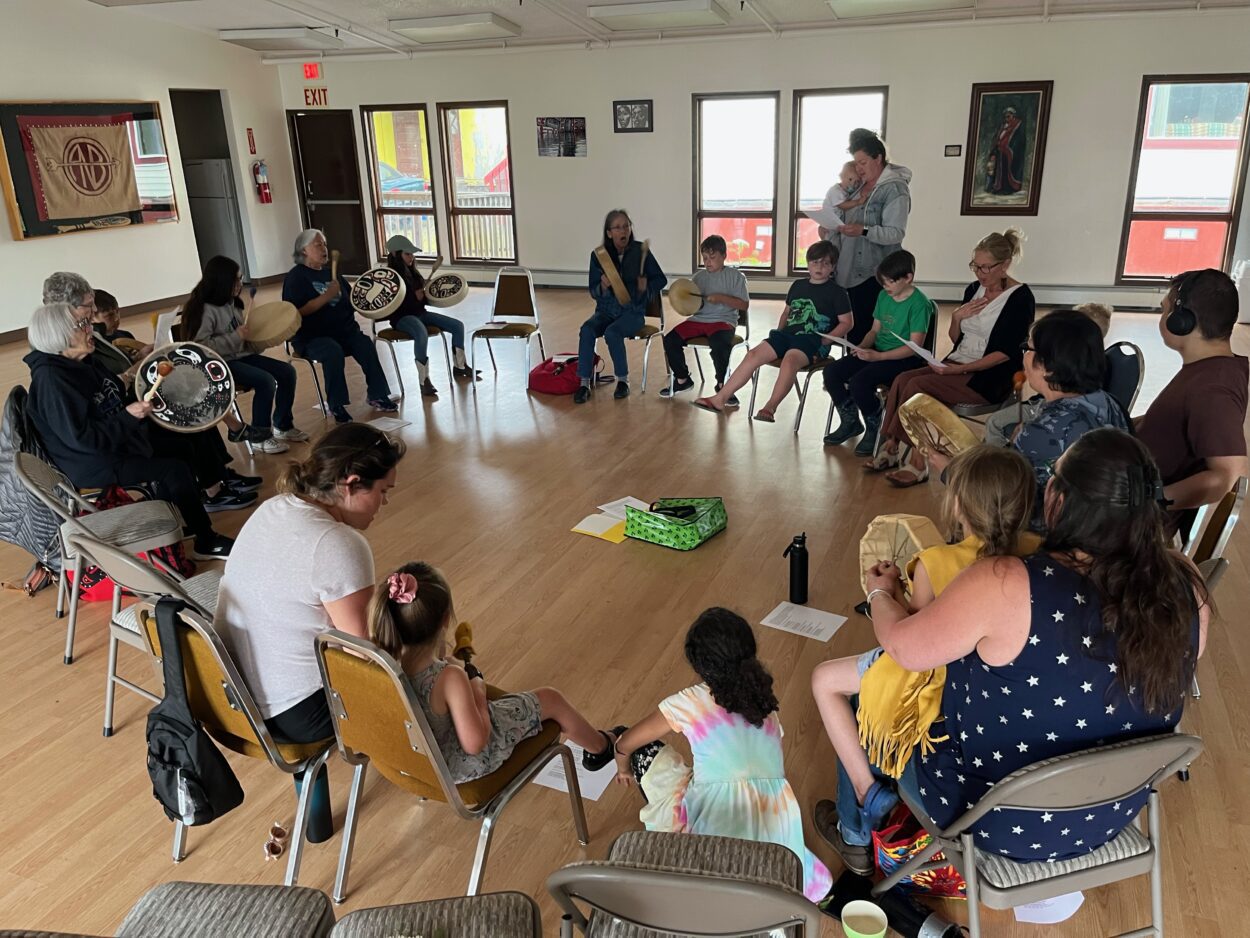
Polynesian voyagers left Juneau last week to embark on a four-year journey. They plan to circumnavigate the Pacific Rim in the Hōkūle‘a, a twinned-hulled canoe, which arrived in Petersburg on June 25th. But before that, KFSK’s Hannah Flor sat in as tribal members practiced a welcome song.
A couple dozen people formed a circle in folding chairs at the John Hanson Sr. Hall. They were there to practice a song that Diane Benson wrote and gifted to the Petersburg tribe. The song is in Lingít. The lyrics roughly translate to “The door was open for us on Lingít land. Let’s gather together.” The song is one of welcome. But Benson says it has a deeper meaning as well.
“It’s a reminder that it’s always been open to us,” said Benson. “This this Lingít world and way of being and thinking and enjoying and being community that is open to us — all we have to do is go in and be who we are.”
Many of the people who were there to practice the song have never spoken these particular words in Lingít before. That’s because state and church policies created a multi-generational gap in language and traditional ways of life. But Benson says that a lack of fluency doesn’t indicate a lack of connection to Lingít heritage.
“Just because you are not fluent in the language, or you feel like we’ve lost these things — it’s just in a different place and you’re finding it again, because you still have it in you,” said Benson. “When we sing, we sing, and we hear and feel our ancestors.”
When the twin-hulled canoe makes its way into Petersburg, it will arrive from the north. There will be bonfires at Hungry Point and along the Wrangell Narrows. Kids from the Johnson O’Malley Foundation will encircle the fires, drumming. Victoria Moore was one of those eagerly awaiting the Hōkūle’a’s arrival in Petersburg.
“Knowing my ancestors have been on that point, welcoming, where there’s been negotiations and so on,” said Moore. “[It’s] our history. So it’s wonderful to be a part of.”
But she was also thankful for the moments of practicing the welcome song.
“I have my son Alex [with me], and Alex is autistic,” said Moore. “And this has been an absolute joy for me to see how involved he wants to be and he loves to sing and dance and it’s been a long time.”
A movement towards language revitalization has been growing in Alaska since the early 2000’s. Indigenous language classes are now available through the University of Alaska, and taught online, in schools, even at public libraries and places of employment. Those efforts are helping to close the generational gap in cultural understanding. Many of those at the John Hanson Sr. Hall were young people. Diane Benson says she was struck by how naturally they took to drumming, and singing the words in Lingít.
“I gotta say, I was so inspired by their, the way they just dove right in, and the way that they connected so quickly,” said Benson. “It literally felt like ancestors being present.”
Until the canoe reaches Petersburg’s South Harbor, dancers and drummers of all ages will continue to practice.
The Hōkūle’a is expected to arrive in Petersburg on June 25th. After a brief stay, the Hōkūle’a and her crew will move on to Wrangell, Ketchikan, Saxman, Metlakatla and Hydaburg.










